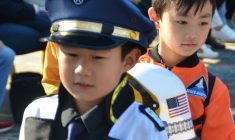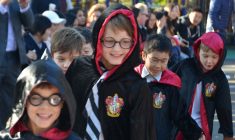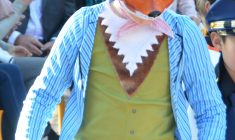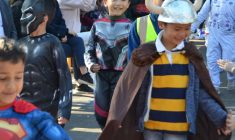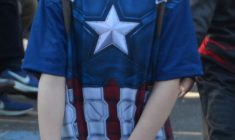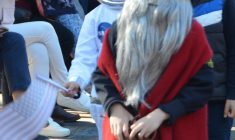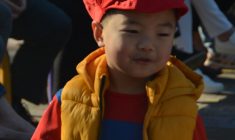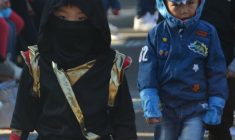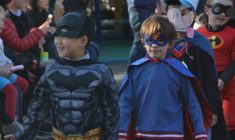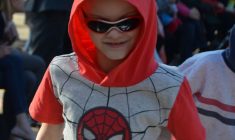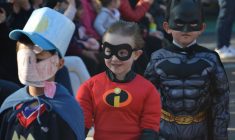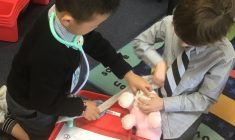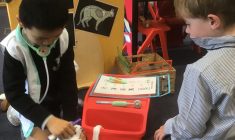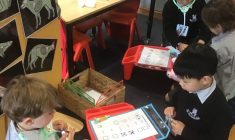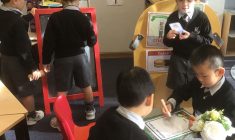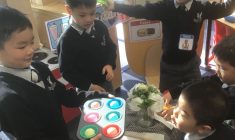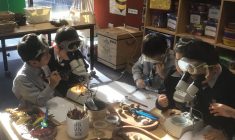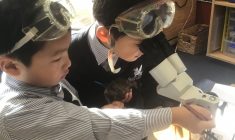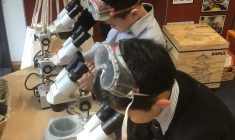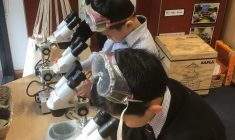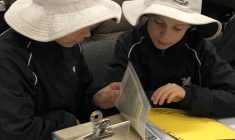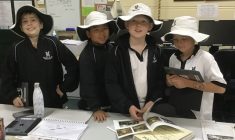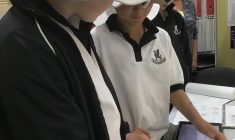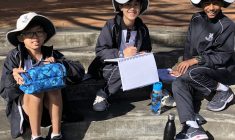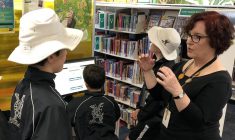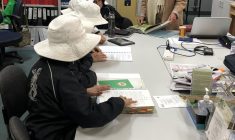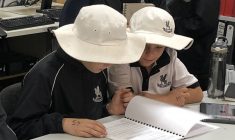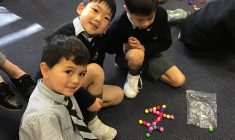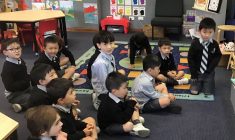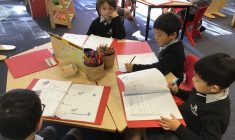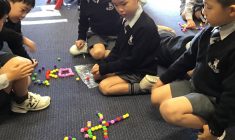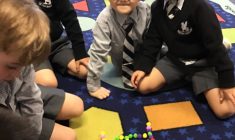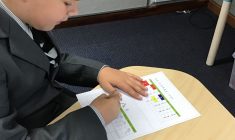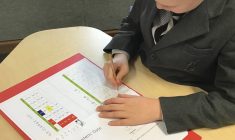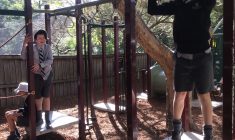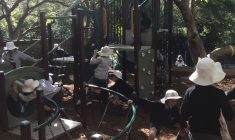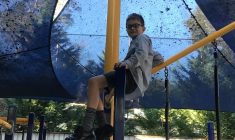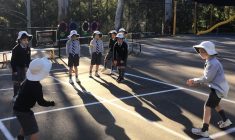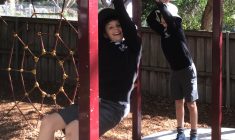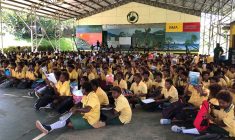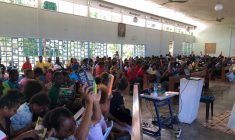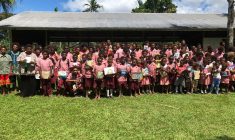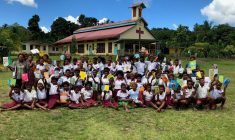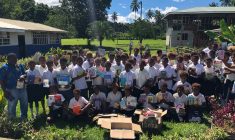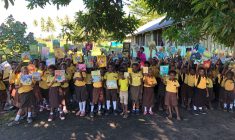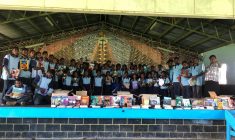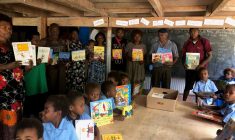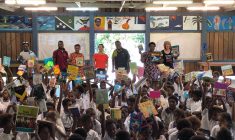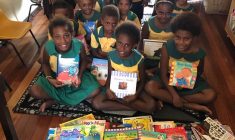Fragility, Coddling and Parenting
Over the last couple of weeks there has been a spike in articles around parenting and this generation of young people, due to the release of John Marsden’s new book called The Art of Growing Up. His comments around overparenting (arguably taken out of context and simplified) being akin to ‘emotional abuse’ were coupled with comments made by Jonathan Haidt, an American academic, currently in Australia. Haidt highlighted what he called a ‘fragility epidemic’ in young people. Haidt’s ideas stem from a popular piece he co-wrote in The Atlantic in 2015 called ‘The Coddling of the American Mind’.
These articles are interesting as they comment directly on the way we parent, societal trends and to a smaller extent how we believe our boys should interact with the world around them. Haidt’s ideas are based around the university context but he says the issues are due to overparenting and result in young people who are ill equipped to function in wider society.
Haidt’s article about the behaviours of contemporary university undergraduates comments on how students are speaking up forcefully about “micro-aggressions” from others, to the point where much speech is being muted, as offence is being construed and censor given for seemingly innocuous comments. At some universities, professors are being asked to post “trigger warnings” before they discuss or assign readings on sensitive topics.
Haidt describes how one of his NYU students objected when he assigned an article on the dilemmas physicians face with a patient who is dying of cancer (the professor should have warned students who had lost a relative to cancer to steer clear of this article, said the student). Another objected when, as part of a discussion of weaknesses of the will, Haidt showed a classical painting of Ulysses having his men tie him to the mast of his ship as the Sirens (in this painting were half clothed) tried to lure them to their deaths (this was degrading to women, said the student in a course evaluation, and Haidt was insensitive for showing it). When students take their concerns to university administrators or social media, professors can become reluctant to broach potentially controversial or upsetting topics, which has a constricting effect on discussion of a variety of topics in the curriculum.
‘Microaggressions are small actions or word choices that seem on their face to have no malicious intent but that are thought of as a kind of violence nonetheless. For example, by some campus guidelines, it is a microaggression to ask an Asian American or Latino American “Where were you born?” because this implies that he or she is not a real American.’
Haidt believes these trends are damaging. He feels that we need to engage with topics that may cause us discomfort, “According to the most-basic tenets of psychology,” he says, “the very idea of helping people with anxiety disorders avoid the things they fear is misguided… Attempts to shield students from words, ideas, and people that might cause them emotional discomfort are bad for students. They are bad for the workplace, which will be mired in unending litigation if student expectations of safety are carried forward. And they are bad for American democracy, which is already paralyzed by worsening partisanship.”
At a recent Sydney University forum, Haidt broadened his discussion to what he sees as the reason why university students are increasingly demanding protection from words and ideas they don’t like or were at odds with their own beliefs or experiences. He gave some good ‘soundbites’ about the ‘growing concern about the threat posed not only to children, but to the rest of society by parental over-protection in the middle classes of the English-speaking world’.
In an article in the Sydney Morning Herald, he commented how many middle-class parents deprive their children of real world experiences due to being risk averse, controlling and overparenting. “Coddling is the determined effort by adults to deprive kids of feedback from their own experience and replace it with lectures.” This manifests itself in too much structure and not enough time to play and explore. “When you deprive children of [unsupervised] play, you make them vulnerable to anxiety and depression because they fail to develop basic skills of self-regulation and interaction that will make them successful in life.” Haidt said by wanting to control and micro-manage their children’s lives, young people are missing out on learning and real-world experience.
He also commented about many parents’ noble quest to shield their children from the pain of failure has led to unintended changes. “In the United States, we know kids need more failure, so we now have college courses on how to fail. They never learn how to fend for themselves.”
These ideas connect with John Marsden’s new book which looks at a wide range of issues in education but highlights overparenting as a serious issue.
I have included some of these articles below for you to read. These articles question much of what many of us feel to be good parenting and the extent of the behavioural checks that we believe are needed to ensure a tolerant and inclusive society.
It is clear that this issue elicits strong responses from both sides of the debate. I have attached an article which also defends contemporary parenting. Please read and reflect upon the articles below in terms of your own family, your beliefs around parenting and your own thoughts on how society should work with individuals, with all our sensitivities and complexities.
Does the tenor of the articles ring true or it is just another academic trying to sell books through being outlandish and provocative? I would be interested to hear your thoughts.
“‘Really disastrous’: the fragility epidemic that could change Australia” by Jordan Baker in Sydney Morning Herald, August 2019
“The Coddling of the American Mind” by Greg Lukianoff and Jonathan Haidt in The Atlantic, September 2015
https://www.theatlantic.com/magazine/archive/2015/09/the-coddling-of-the-american-mind/399356/
“Stop blaming our parenting” by Wendy Tuohy in in Sydney Morning Herald, August 2019
“John Marsden says parents and schools are failing kids, but his book offers little evidence” The Conversation, August 2019
Ben Barrington-Higgs







